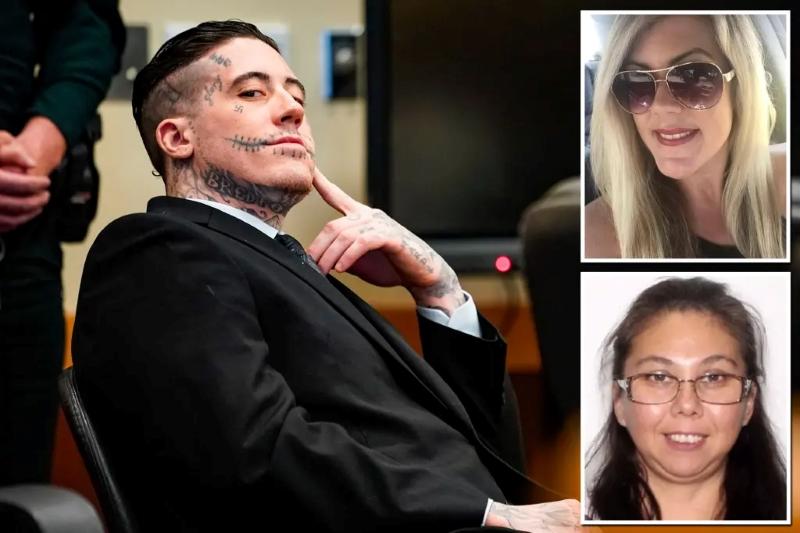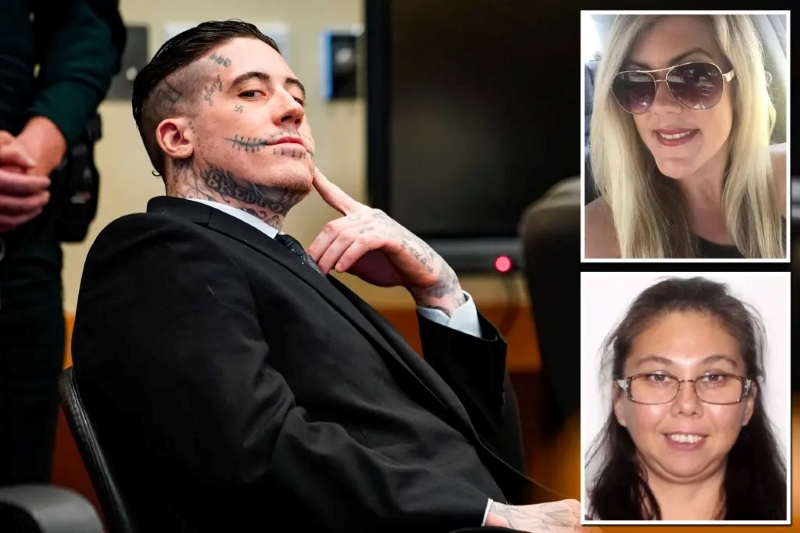
The Wade Wilson Case is a tragic and complex legal event that has garnered significant public and media attention due to the severity of the crimes and the subsequent death penalty verdict. Wade Wilson, a 30-year-old from Fort Myers, Florida, was convicted of first-degree murder for the deaths of Kristine Melton and Diane Ruiz in 2019. After a prolonged legal battle, Wilson was sentenced to death by a jury in June 2024, with the presiding judge, Nicholas Thompson, affirming the jury's decision. The case has raised critical questions about the use of the death penalty, legal interpretations, and the broader implications for society.
The Murders: A Detailed Timeline of Events
Wilson’s actions shocked the community due to the brutal nature of the crimes. The timeline of the incidents is essential to understanding the legal outcome.
Murder of Kristine Melton
Kristine Melton was killed at a bar in Fort Myers. According to the evidence presented during the trial, Wilson strangled Melton while she was asleep, stole her car, and fled the scene. The method of killing—strangulation—suggests a level of premeditation and personal aggression. Dr. Noelia Alemar Hernandez, the associate medical examiner, testified that Melton’s death was a result of asphyxiation caused by sustained pressure on her neck.
Murder of Diane Ruiz
Shortly after Melton’s murder, Wilson lured Diane Ruiz into his car under false pretenses. In a gruesome sequence of events, Wilson attempted to strangle Ruiz but failed. He then resorted to running her over multiple times with his vehicle. The brutal nature of Ruiz’s death was a key factor in the prosecution’s argument for the death penalty. Ruiz’s family, including her son and fiancé, delivered emotional testimonies about the impact of her death during the sentencing phase.
Arrest and Confession
Wilson’s arrest occurred on October 8, 2019, after he confessed to his father, Steven Testasecca. Over a series of phone calls, Wilson provided graphic details of the murders, which initially seemed like a disturbing fabrication to Testasecca. However, as the confessions grew more specific, Testasecca realized the gravity of the situation and alerted law enforcement to Wilson’s whereabouts. The subsequent arrest and confession became a cornerstone of the prosecution’s case, showcasing Wilson’s lack of remorse and his willingness to recount the events without hesitation.
The Legal Proceedings: Trial and Sentencing
The Trial: Key Testimonies and Evidence
The prosecution’s case against Wilson was solidified through critical evidence and testimonies:
- 911 Call from Joshua Lukitsch: Lukitsch, a key witness, provided a recorded 911 call in which Wilson admitted to killing multiple people and expressed a desire to flee.
- Stephanie Sailors’ Testimony: Stephanie Sailors, who lived with Kristine Melton, testified that Melton did not appear fearful or anxious before her death, indicating that she was caught completely off-guard by the attack.
- Medical Examiner’s Report: Dr. Noelia Alemar Hernandez’s expert testimony confirmed that Melton’s cause of death was consistent with strangulation, corroborating Wilson’s confession.
The defense, on the other hand, attempted to introduce mitigating factors, such as Wilson’s history of head injuries and potential brain damage. Dr. Mark Rubino suggested that Wilson’s violent behavior could be linked to neurological deficits, but the prosecution countered by stating that no substantial proof linked the brain damage to his criminal actions.
The Sentencing Phase: Arguing for the Death Penalty
On August 27, 2024, Judge Nicholas Thompson presided over the sentencing phase, weighing the arguments presented by both sides. The prosecution emphasized the heinous nature of the crimes and the lasting trauma inflicted on the victims’ families. Statements from family members highlighted the emotional devastation caused by Wilson’s actions.
The defense sought to humanize Wilson, portraying him as a troubled individual with a history of substance abuse and mental health issues. A neuropsychologist testified that Wilson’s addiction problems and past head injuries might have impaired his impulse control, making him prone to violent outbursts. However, the state’s rebuttal expert dismissed this theory, arguing that Wilson’s calculated and methodical behavior during the murders negated any claim of diminished capacity.
Legal Context: Florida’s Death Penalty Laws
Understanding Florida’s Death Penalty Statutes
Florida’s legal framework for capital punishment has undergone significant changes in recent years. Under current law, a death sentence can be recommended by a simple majority of an 8-4 jury vote. This threshold is a departure from previous requirements for a unanimous decision, sparking concerns about the fairness and consistency of death penalty rulings.
The 2023 amendments to Florida’s death penalty laws have made it easier for prosecutors to secure death sentences, leading to debates about the potential for arbitrary and capricious sentencing. Critics argue that lowering the threshold for a death penalty recommendation could increase the likelihood of wrongful executions and undermine public confidence in the judicial process.
Judge Thompson’s Final Ruling
Judge Thompson ultimately concurred with the jury’s recommendation, describing Wilson’s crimes as “heinous, atrocious, and cruel.” In his final ruling, he emphasized that Wilson’s actions demonstrated an utter disregard for human life. Despite the defense’s attempt to mitigate his culpability by highlighting brain damage and addiction, Thompson ruled that these factors did not outweigh the severity of the crimes.
The Death Penalty Debate: Ethical and Legal Implications
The Wade Wilson case has reignited debates about the use of capital punishment in the United States, particularly in cases involving mental health issues. Proponents argue that the death penalty serves as a necessary deterrent and a form of retributive justice for the most egregious offenses. Opponents, however, contend that the risk of executing individuals with potential neurological or psychological impairments raises serious ethical concerns.
Impact on Public Perception
The media coverage of the Wade Wilson case was intense, branding Wilson as the “Deadpool Killer” due to the violent nature of his crimes and his apparent lack of remorse. Social media further amplified the public’s reaction, with many expressing relief at the death sentence while others questioned the morality of capital punishment. The polarized reactions underscore the complex emotions surrounding high-profile murder cases and the societal struggle to balance justice, rehabilitation, and the value of human life.
Conclusion: Broader Implications for Justice and Society
The Wade Wilson Case serves as a sobering reminder of the complexities inherent in the criminal justice system. It highlights the difficulties in adjudicating cases that involve extreme violence, mental health issues, and the ultimate punishment—death. As Florida continues to grapple with its death penalty statutes, the case will likely serve as a benchmark for future discussions on capital punishment and criminal accountability.


